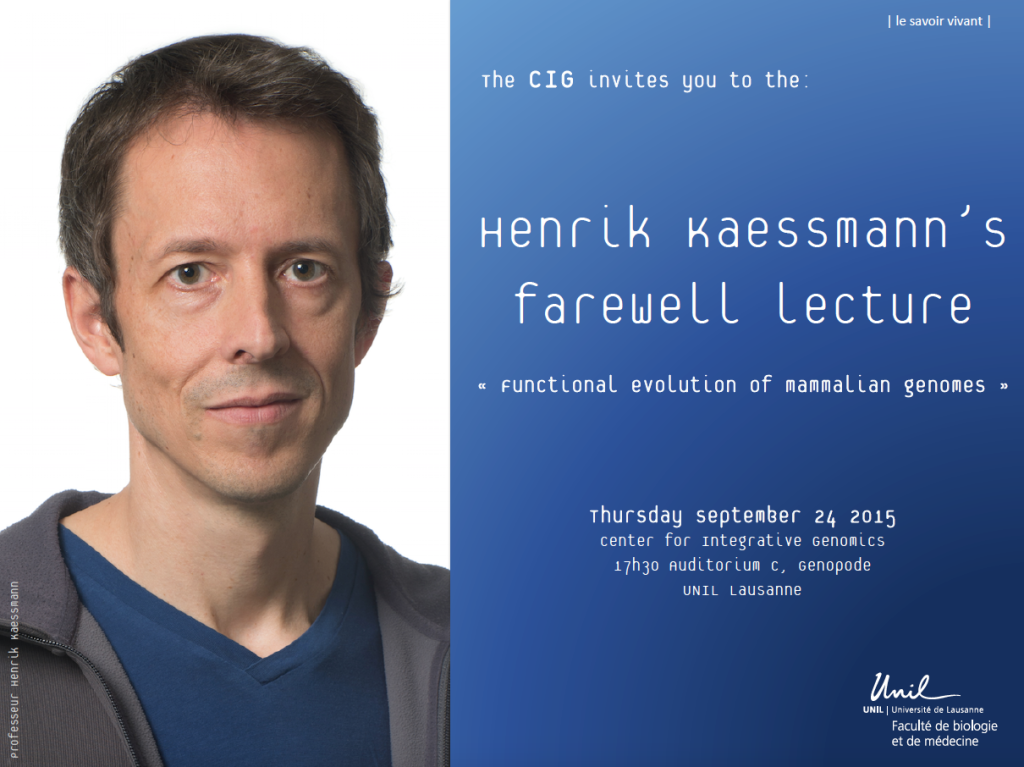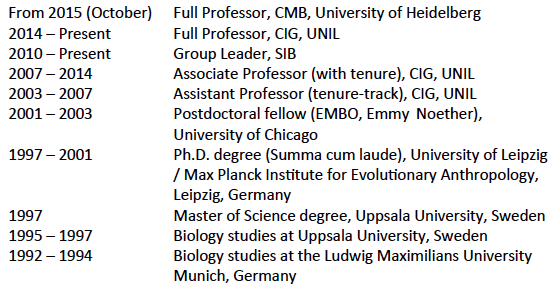Henrik Kaessmann, Professor at the Center for Integrative Genomics (CIG) of the University of Lausanne (UNIL), is an expert in the field of evolutionary genomics. The main goal of his research is the identification of molecular changes underlying the evolution of mammalian phenotypes.
Given that regulatory mutations affecting gene expression probably explain most of phenotypic evolution, the work of his group work focuses on
large-scale evolutionary analyses of gene expression patterns and underlying regulatory mechanisms across tissues from representative mammals and vertebrate outgroup species. He will leave UNIL in October for a professorship at the University of Heidelberg (Center for Molecular Biology).
Mammals share major traits (e.g., lactation, hair and relatively large brains with unique structures), but have also evolved distinct anatomical, physiological and behavioral characteristics, relating to differences in reproduction, life span, cognitive abilities and disease susceptibility. The molecular changes (i.e., changes in protein/RNA sequences or expression levels) underlying these phenotypic shifts and the associated selective pressures have only recently begun to be investigated based on an increasing number of available mammalian genomes. Henrik Kaessmann’s group performs integrated bioinformatics analyses pertaining to the functional evolution of mammalian genes (and potentially associated phenotypic changes) on the basis of publicly available genomic data as well as extensive data (e.g., large-scale transcriptome data) generated by the wet lab unit of the group.
His group has been interested in a range of topics related to the functional evolution of genomes from primates (e.g., the emergence of new genes and their functions) and other mammals (e.g., the origin and evolution of mammalian sex chromosomes). In the framework of projects launched in 2009, his group has been producing large amounts of transcriptome and genome (e.g., epigenome) data for a unique collection of tissues from representative mammals and outgroup species (e.g., birds) using next generation sequencing technologies. Topics of current projects that are based on these data include the origins and/or evolution of protein-coding genes, alternative splicing, microRNAs, long noncoding RNAs, and sex chromosomes (e.g., X dosage compensation and Y origins and functions).


